April 30, 2024 (Shanghai) Eteng Jingang announced that its new drug marketing application for the Class 1 innovative drug Entinostat Tablets (trade name: Jingzhuda) has been officially approved by the China National Medical Products Administration (NMPA). It is used in combination with an aromatase inhibitor to treat patients with hormone receptor (HR)-positive, human epidermal growth factor receptor 2-negative (HER2-) breast cancer who have relapsed or progressed after endocrine therapy.
In July 2021, a randomized, double-blind, randomized trial of entinostat combined with exemestane in the treatment of hormone receptor (HR)-positive, human epidermal growth factor receptor 2 (HER-2)-negative advanced breast cancer patients was conducted in China. The controlled phase III clinical study achieved the pre-specified primary endpoint. The results show that entinostat combined with exemestane can significantly improve the progression-free survival (PFS) of patients with HR-positive, HER-2-negative advanced breast cancer who have failed endocrine therapy compared with placebo combined with exemestane. Statistically significant and good safety data.
A total of 354 patients were enrolled in the study, with a median age of 52 years (range 28-75 years), and the proportions of ECOG 0 points and 1 points were 53.7% and 46.3% respectively. Approximately 31.9% of patients had primary endocrine resistance, and 38.7% of patients had previously received rescue chemotherapy. The majority of patients (68.9%) had visceral metastases at baseline. Baseline characteristics were generally balanced between groups. The results of the study showed that the PFS of the entinostat group was significantly longer than that of the placebo group, and the risk of disease progression or death was reduced by 24%. Overall survival showed a benefit trend, and the risk of death was reduced by 16.3%. Premenopausal or perimenopausal patients Patients benefited from the entinostat combination regimen consistent with postmenopausal patients. The safety data of the study are consistent with the known safety characteristics of the drug, and the incidence and severity of some hematological toxicities are lower than similar drugs.
Entinostat is a new, oral HDAC inhibitor that regulates HDACs by selectively inhibiting class I HDACs, especially the representative HDAC subtypes 1, 2, and 3. Hyperacetylation of histones promotes transcriptional activation of specific genes, ultimately inhibiting cell proliferation, accelerating terminal differentiation, and/or inducing apoptosis. Entinostat has been carried out in more than 50 clinical studies in several countries around the world, and the safety and effectiveness of entinostat as a monotherapy or in combination with other drugs have been evaluated in more than 2,000 cancer patients. In addition, entinostat tablets have the unique characteristic of long half-life, allowing for once-a-week clinical administration, which greatly improves patient medication compliance and reduces patient medication costs, further distinguishing it from other HDAC inhibitors. The potential to be “best in class”.
Currently, 5 similar HDAC drugs have been approved for marketing globally, and there is only one in the Chinese market. This product was approved by NMPA in November 2019 and is used in combination with aromatase inhibitors to treat hormone receptor-positive (HR), human epidermal growth factor receptor-2 (HER-2)-negative, postmenopausal, and endocrine therapy Patients with recurrent or progressive locally advanced or metastatic breast cancer.


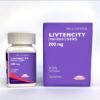



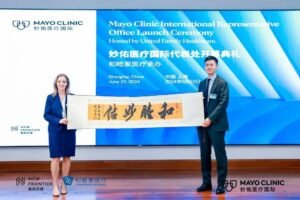



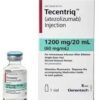
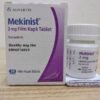


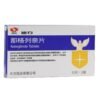
Leave a reply